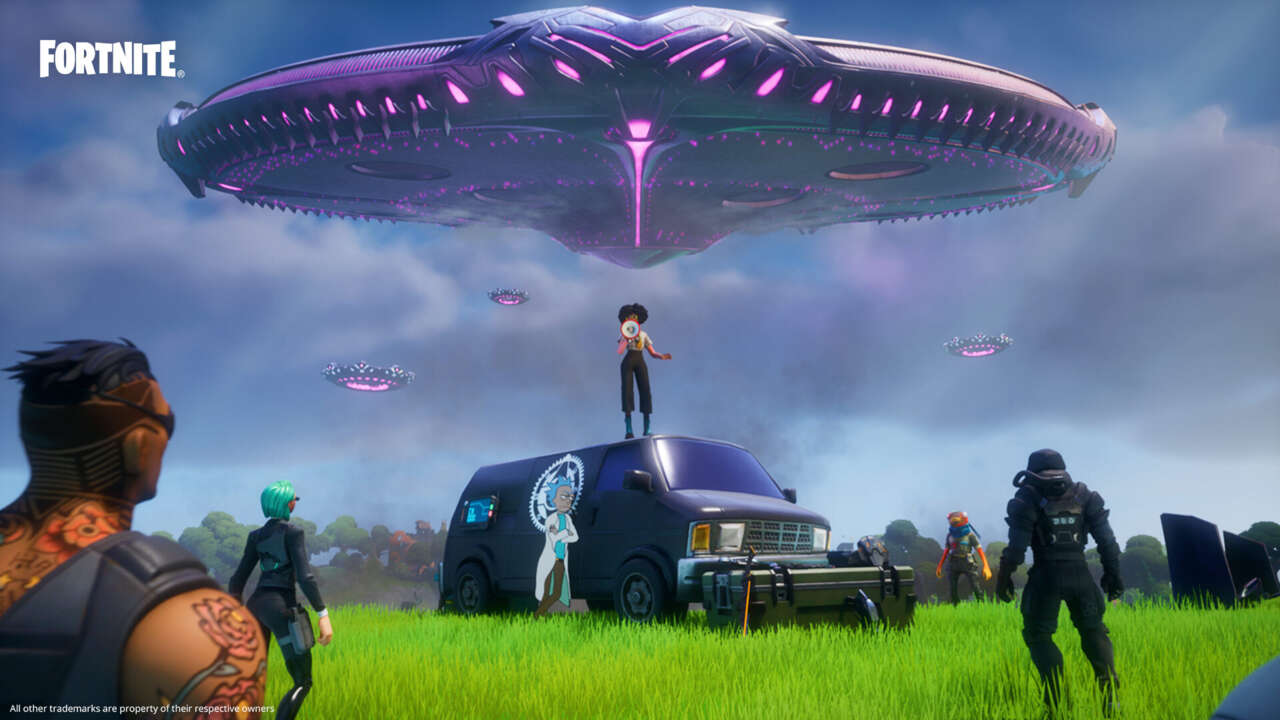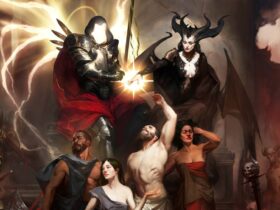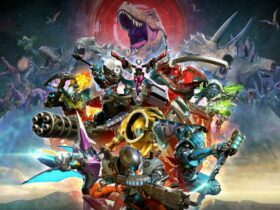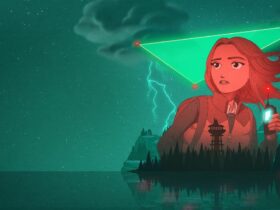Friday ‘Nite: Fortnite’s most unlikely inspiration is this popular science book
In last week’s Friday ‘Nite, my weekly Fortnite lore deep dive, I looked at how much DNA is shared between Epic’s sprawling battle royale game and the pre-zeitgeist-dominated TV series Lost. In conclusion, I hope it’s clear to me that the upper echelons of Epic’s storytelling division are lost fans. In particular, it seems that Donald Mustard, Epic’s chief creative officer and de facto Fortnite lore bible scribe, was apparently fed up with the show a decade ago, like many of us.
But Mustard is multifaceted, and this week I want to highlight another apparent influence of his, one that seems even less likely for a game consisting of teenagers buying avatars of their favorite Marvel superheroes.
In 2011, professor and historian Yuval Noah Harari published what would become his career-defining book: Homo sapiens: A Brief History of Humanity. A nearly 500-page primer on our species’ bloody origins to modern times, it’s become a bestseller. To this day, it remains high on the recommended reading lists of many public figures, and Harari’s subsequent books, Homo Deus and Less For The 21st Century, became their own bestsellers.
What does this have to do with Fortnite? Well, Mustard is known for making vague teasers about Fortnite’s story and future events on Twitter and is clearly a fan.
Incompatible views and conflicting beliefs are cognitive dissonance that fuels creativity, myth-making, and invention that are critical to humanity and our continued existence.
And our ability to conceive and believe in imaginary order, our ultimate evolutionary superpower.
– Donald Mustard (@DonaldMustard) November 14, 2021
What Mustard seems to be referring to in his somewhat cryptic tweet is the exact argument for Homo sapiens. In it, Harari argues that Homo sapiens survived as a distinct human species for a number of controversial reasons. Ultimately, the author sees our survival as a result of our ability to lie. We lie to ourselves, to each other, to the world we know, and to what we don’t know. It’s this vital and unique ability to tell stories, make promises, and plan for an uncertain future that has been the unquenchable fire of progress throughout human history, Harari said. Harari wrote:
“There is no god, no state, no money, no human rights, no law, no justice beyond the common imagination of mankind in the universe.”
Our consciousness, however puzzling its origins, has given us this unique ability and has ensured that we have been able to outlive some of the other six species of human beings over the past 70,000 years (in some case, we will slaughter with our own hands).
While the popular anthropology book has sometimes been criticized for lacking certain claims about what early humans might have been like, it has still won thousands of superfans, and apparently, Wasabi is one of them. Unexpectedly, this is important to the colorful and often ridiculous Fortnite, not only because it provides insight into the mindset of its writers, but also because it may reveal details of the story that the always tight-lipped Epic Games has yet to share. .
In Homo sapiens, the phrase “imagined order” appears a lot. Harari defines it as a power structure that does not exist in nature, but that we, as Homo sapiens, invent to maintain the structure on Earth. In Fortnite, the imaginary order is the overtly evil faction that seeks to control Zero, the life force at the center of the island. Imaginary order is portrayed as the bad guy, and while I have my doubts, maybe that will eventually come to pass.
In Fortnite, imaginary order is imaginary order.
But the faction’s name reveals at least one thing: its power is as theoretical as the ongoing fan dream of Chapter 1 Island Returns. The Illusionary Order’s dominance on Artemis Island in Fortnite was not given by nature. The group simply raised its flag and condemned everyone else as nasty interlopers.
From this, what can we infer? For starters, it’s possible, and I think it’s quite possible, that we haven’t yet met the real grand ruler of the Fortnite world. Perhaps the often mentioned but never seen Geno takes on the role. Maybe Dr. Sloan doesn’t represent the spearhead of the IO, other more powerful classes exist in the shadow group who know the island better. Maybe Zero itself was conscious and pulled the Loopers, IO, The Seven, and everyone else who made their way to the island.
While we don’t have this specific answer yet, we can assume that the imaginary order, whether good, evil, or something in between, is not the ultimate ruler of the Fortnite multiverse. If so, apparently Homo sapiens fan Donald Mustard would give it another name. Instead, Epic gave a sly nod to IO’s fragile balance of power — it needed to satisfy its own problems with the almighty universe by pretending everything was in order.
IO is intended to be a tool for Dr. Slone and others to sort order out of chaos, but as in Sapiens, we Fortnite players may understand that these once-seemingly basic structures are ultimately quite bendable, even easy-to-follow. Broken. Well, either that’s it, or Epic is just teasing the upcoming Yuval Noah Harari skin in the Item Store.
Esports.com.tnmay receive a commission from retail offers.
Check more articles in our categories Gaming & News ou encore Anime.
Thanks for visiting we hope our article Friday ‘Nite: Fortnite’s most unlikely inspiration is this popular science book
, we invite you to share the article on Facebook, pinterest and e-mail with the hashtag ☑️ #Friday #Nite #Fortnites #inspiration #popular #science #book ☑️!














Leave a Review